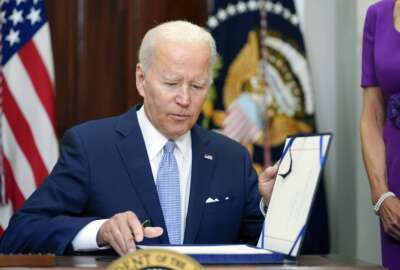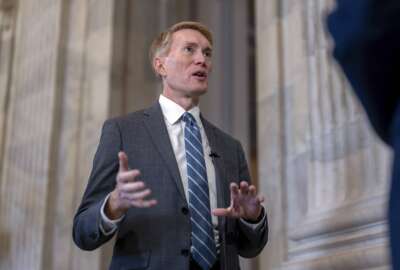A look at OMB’s administration assessment and management plans
Francis Rose is joined by former OMB associate director Robert Shea with analysis on the memo
wfedstaff | June 3, 2015 1:54 pm
By Vyomika Jairam
Federal News Radio
Robert Shea is the former Associate Director for administration and government performance at OMB and is currently with Grant Thornton. He joined Francis Rose on InDepth with analysis on the memo that Jeff Zients, OMB’s Federal Chief Performance Officer and Deputy Director for Management, sent out to the Senior Executive Service.
Titled “The Accountable Government Initiative – an Update on Our Performance Management Agenda,” Zients says the administration is “off to a good start, and that we are developing the momentum required for meaningful, sustained improvements in how the government works for the American people.”
Zients also lays out the administration’s management plan and six areas of focus:
- driving agency top priorities
- cutting waste
- reforming contracting
- closing the IT gap
- promoting accountability innovation through open government
- attracting and motivating top talent
The memo basically outlined a management plan that put accountable government initiatives under one umbrella, Shea said.
Zients also laid out his intention for performance.gov to be used to manage and track how programs are performing across the government.
“If one agency has a system that has capabilities that another agency can use, this will be an important forum to share that kind of {information},” Shea said.
While agencies have different missions, Shea said, they all achieve them through regulation or grants, so sharing effective practices can and should be shared.
Zients has also requested $100 billion in the next budget to conduct evaluations across agencies. Shea said the evaluations should be carried out by the most rigorous methodology to isolate the impact that programs are having from other factors.
“This is a pretty tough nut to crack for a lot of programs, but this is a serious effort to take a scientific approach to assessing whether or not programs are working as intended,” Shea said.
Oftentimes though, you find that programs aren’t working as effectively as thought, and so are wasteful. And Shea says in these tight fiscal times, people are going to be desperate to find ways to save money, so to be able to evaluate and find evidence of what programs aren’t working would be good. That way, that funding can either be redirected, or just saved.
Shea says that what Zients is setting out to do is ambitious, but achievable if they stick to their outlined plan.
Copyright © 2024 Federal News Network. All rights reserved. This website is not intended for users located within the European Economic Area.





